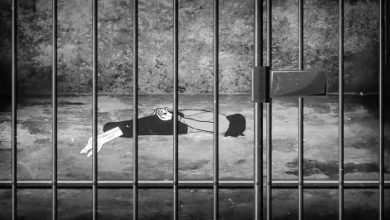Condemnation of Saudi officials for using brutal and horrifying torture methods

Human rights organisations have condemned Saudi officials for using brutal and horrifying torture methods under the pretext of anti-terrorism legislation to suppress political opposition.
In a statement issued on the International Day in Support of Victims of Torture, the organisations stated that the Saudi authorities often arrest and detain dissenters and activists in secret and isolated locations, creating an environment conducive to torture.
The organizations highlighted that any criticism of the government could be justified as a “threat to national unity” and dealt with as a terrorist crime, providing ample space for officials to resort to torture.
According to the statement, officials in the Kingdom regularly employ violence from the moment of arrest until the conviction.
Civil society organizations have received reports of Saudi officials using brutal and horrifying torture methods, including whipping, beating with electric rods, restraining and hanging individuals by their wrists from the ceiling.
Other acts reported include electric shock, deprivation of food and sleep, prolonged solitary confinement, simulated drowning, denial of medical care, sexual harassment and assault, and threats of rape and execution.
Torture is often used in Saudi Arabia to extract false confessions, which are presented as court evidence to secure convictions.
In a recent case involving several young individuals facing execution, all defendants were convicted based on their actions when they were minors and subjected to torture and detention.
June 26 marks the International Day in Support of Victims of Torture, which coincides with the entry into force of the United Nations Convention against Torture and other Cruel, Inhuman or Degrading Treatment or Punishment.
On this occasion, human rights organizations called on countries in the Middle East and North Africa to fulfil their obligations under this convention by taking serious steps to end the practice of torture and hold perpetrators accountable.
Torture is defined in Article 1 of the Convention against Torture as “any act by which severe pain or suffering, whether physical or mental, is intentionally inflicted on a person.”
Torture is absolutely prohibited under international law, meaning no exceptions can justify such practices.
The prohibition of torture has been recognized as part of customary international law, making it binding on all states, whether or not they are parties to the Convention against Torture.
Every state in the Middle East and North Africa has ratified the convention, thus being bound by the absolute prohibition of torture.
However, as evidenced by the monitoring work carried out by civil society organizations, torture, like many other human rights violations, remains a widespread practice throughout the region.
This is partly due to the lack of accountability for perpetrators and the abuse of presumed counter-terrorism tactics as a pretext for torture.
Torture is a grave violation of human dignity and is completely prohibited under international law. Nevertheless, prisons and detention centers in countries across the region systematically employ torture. Prisoners and detainees are particularly vulnerable to such practices and are constantly deprived of their right to humane treatment.
Countries in the Middle East and North Africa use various torture methods ranging from inflicting severe physical harm to subjecting victims to mental and psychological suffering, often leading to complex post-traumatic disorders.
There is no doubt that torture has lifelong effects not only on the physical and mental well-being of the victims but also on society as a whole.
Torture is often facilitated within contexts of impunity that allow for the use of violence. Examples of such contexts include war-torn countries with fragmented or unstable governmental institutions, such as Syria, Iraq, Libya, and Yemen, as well as repressive authoritarian regimes like Egypt, Saudi Arabia, and the United Arab Emirates, and countries plagued by corruption like Lebanon.





